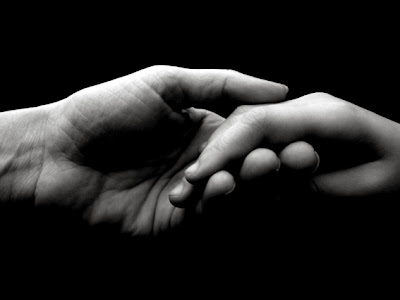BE the CHANGE
A friend of mine posted this article
on Facebook yesterday. Reading it and
seeing how upset the writer was as she shared her experience, I
couldn't help but be saddened that people are so impacted by cruelty
that is clearly rooted in the unhappiness of the other person. I
learned many years ago that what he or she is saying is almost never
about you. It's often about self-loathing, feelings of
insecurity, a desire for human interaction albeit negative or
positive, a plea for attention or a declaration of grievous scarring
on a deep level.
And that person WANTS to be
made more angry.
I've had horrid things said to me both
overtly and under people's breaths, but I think the instinct to
lash out subsided when I was about 25. I realized that to do that is
not only to become part of the ugliness, which is the attacker's
conscious intention, but to fuel the aggressor's fire which is his or
her subconscious intention. Attempted escalation is
the point. Engaging in that way almost always ends with you
walking away infested with horrible energy and feel unnerved and
unbalanced. The person is looking for a fight not
only as a means of taking out excess hostility, but as a way of
confirming that his or her anger at the world is justified because as
you've just helped "prove", human beings are bitchy
and terrible. I just refuse to be a pawn in their anti-humanity chess
game, especially when I know that pain is likely the origin. So
while I understand the writer of the article asking "Why would
you say that to me?", it's likely a wasted question. The
person may not even know. If he or she does know, you're likely
to not get an honest answer but instead a reiteration of what was
already said. So instead, now I will say something like "I wish
you love" or "I hope you find peace". And I mean it.
I will never forget one instance in
which a racist woman wasn't happy that I sat next to her on the
streetcar. (She may want to reconsider Toronto as her place of
residence.) As I got up to head to the doors, I heard her mutter
"Goddamn spades." My first reaction was shock - I had no
idea that people still said that. She must have been playing
cards in her mind. My instinct was to ignore it. Instead, I
turned around, looked right at her and said "I'm sorry you've
been hurt". She was visibly stunned but said nothing, instead
immediately diverting her gaze away from me. I got off the bus
feeling nothing but sorrow. What a contaminated, embittered person.
There was zero room in me left for anger because I was so
completely filled with sadness for her.
Countering callousness with compassion can be incredibly difficult. At times I've failed at it miserably, but I try very, very hard as do many of us. And depending on the severity of the instigator's action, it may not always be what seems called for. But we can all try because more often than not, it is the panacea. There are people, however, who honestly don't know what to do with it. It shakes them to the core. I think that that is because in their own lives, they have so rarely been on its receiving end. In that moment when they've been vicious, we can respond in a way that may soften them, or in a way that is likely to harden them. We unfortunately can't control the behaviour of others, but we can decide what our responses will be.
Sometimes people need to get something
before they can learn how to give it.
Namaste,
TT

Comments
Post a Comment